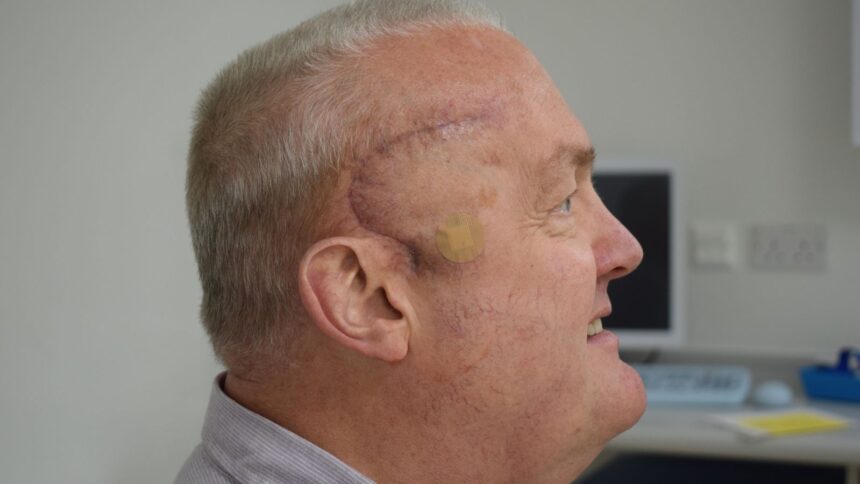Last December, Paul Read, a 62-year-old Luton engineer, became aware that he was suffering from a terrible headache. His face seemed to have fallen to one side two weeks later, which worried his wife Pauline that he had suffered a stroke.
After physicians discovered a big lump on his brain, they determined that he had recurrent glioblastoma, a type of brain cancer that typically kills patients within 18 months.
Even after having surgery on December 27 and receiving chemotherapy and radiation therapy, Mr. Read was informed in July that his tumor was developing once more.
Given how aggressive the tumor was, I was completely prepared for it to come back,” he added. I was glad to try anything else, even though I know the results aren’t excellent.
The University College London Hospitals NHS Foundation Trust (UCLH) then gave him the opportunity to be the first patient in a clinical trial that aims to cure the illness.
Before placing a tiny medical device called an Ommaya reservoir behind the scalp that attaches to the tumor via a tiny tube, doctors in the CITADEL-123 study remove as much tumor as they can.






